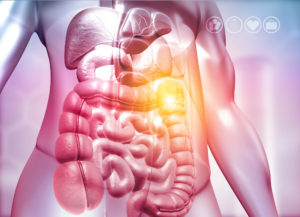
You may find it surprising to learn that a few small decisions each day have the potential to reduce the risk of colon-related illness in a significant way.
I’d like you to think of how often you hear about “gut health.” But guess what? Gut health is practically synonymous with colon health. Of the roughly 40 trillion bacteria residing on your body, the overwhelming majority of them stay in your intestines.
The ones that live in your colon can have a massive impact on the risk of colon-related disease.
And you have a lot of power over which types of bacteria take up residence.
Bacteria living in your body can fight or contribute to disease. It really comes down to which types are living inside of you. Generally speaking, a diverse array is healthy and may help fight against illness.
Disease risk goes up when the population is largely homogenous.
There is a genetic component to your microbiota (gut population), but you can manipulate it with food choices. There is plenty of data to suggest that the more diverse a person’s diet, the more diverse, and healthier, their gut bacterial population.
What dies a diverse diet look like? Certainly not like the Western or Standard American diet, typically made up of meat, potatoes, junk food, and food with a uniform shade of golden brown.
That stuff, particularly the golden brown and junk foods, can hijack your gut bacteria. Sugar and grease can sabotage colon health.
Instead, you’ll want to build your diet around fiber-rich foods that feed healthy bacteria, so they grow and breed. Known as prebiotics, these foods can make a huge impact on colon health and help lower the risk of disease.
So, next time you’re reaching for a snack or building a meal, try colorful fruits and veggies. Some great prebiotic foods include:
- Raspberries
- Blueberries
- Artichokes
- Whole grains
- Potatoes (not particularly high fiber when peeled, but they do feature resistance starch that can feed healthy gut bacteria)
- Broccoli
- Beans
- Lentils
- Leafy greens